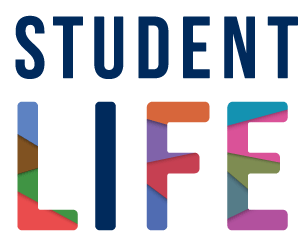Academic accommodations are provided when students experience disability-related barriers that prohibit demonstration of their knowledge and skills. Accommodations are determined based on available information regarding your functional limitations and their impact on your academic work, as applied to the academic demands of your program, that is provided by:
- you, in dialogue with your accessibility advisor
- your healthcare practitioner
- provincial best practices
To access academic accommodations, you need to register with Accessibility Services. Examples of accommodations include:
Accessible classrooms
You can view photos of most classrooms on campus. You will need to know the building and classroom number to search for it. Classes held at St. Michael’s College, Trinity College and Victoria College are not included in the above search option. Contact your accessibility advisor the classroom is not accessible or you need additional information.
Cue sheet
A cue sheet (PDF) is intended to provide information to trigger the answer to a question. It is not intended to provide you with the answer. Cue sheets should not contain a synopsis of course material, but rather definitions and formulas that would enable you to solve the problem.There are specific documentation requirements and important instructions for both professors (PDF) and students (PDF) regarding cue sheets.
Alternate format for textbooks and course packs
For students who require alternate formats to access their course material, textbooks and course packs can be provided in alternate formats such as braille, DAISY recordings and e-text files (to be used with Kurzweil software). This service is provided in collaboration with Access Services, a department of Robarts Library.
How to access alternate formats
- Meet with your accessibility advisor and sign the contract.
- Contact Access Services to schedule an appointment by phone 416-978-1957, email access.services@utoronto.ca. Visit at Robarts Library, 1st floor, Room 1008.
Dictionary and calculator request
If a dictionary or a calculator has been approved as an academic accommodation, download and complete a Dictionary Request Form or Calculator Request Form.
Disability-related extensions
All disability-related extension requests require approval from your professors and instructors, and the request must be made before the original due date. We recommend asking for an extension and providing the Letter of Accommodation a week before the original due date. Read more about disability-related extensions.
Ergonomic or adaptive furniture in the classroom
Adjustable chairs and tables are available for use in some classrooms.This accommodation must be approved by your accessibility advisor.
Reduced course load
Many students reduce their course load as a way to cope with the demands of their academic programs. This accommodation is frequently recommended by an accessibility advisor.
Volunteer note-taking
Note-taking is one of the most common academic accommodations for students whose disability affects their ability to take notes. Once your accessibility advisor approves you for note-taking , you can sign up for the note-taking support service.
-

Associated Services
Accessibility advisor support
You and your accessibility advisor will work together to develop your academic accommodations. Learn more about Accessibility advisor supportDisability-related extensions
The impact of a disability may mean you need additional time to complete assignments. Learn more about Disability-related extensionsResidence accommodations
Students requiring residence accommodations are encouraged to register with Accessibility Services as soon as possible. Learn more about Residence accommodationsLetter of Accommodation
Your Letter of Accommodation is developed in collaboration with your accessibility advisor and is used to begin a discussion with course and program staff about your accommodation needs. Learn more about Letter of AccommodationPeer note-taking
Our accommodations administration team can help you with questions about accessing class notes through our Volunteer Note-taking program. Peer note-taking is a commonly used resource accessed by students registered with Accessibility Services. Learn more about Peer note-takingLearning strategist support
A learning strategist can help you identify your strengths and develop personalized learning strategies to meet the challenges of academic life. Learn more about Learning strategist supportAccommodated Testing Services
Accessibility Services works with Accommodated Testing Services (ATS) to administer and coordinate quizzes, term tests and exams for students registered with Accessibility Services. Learn more about Accommodated Testing Services




